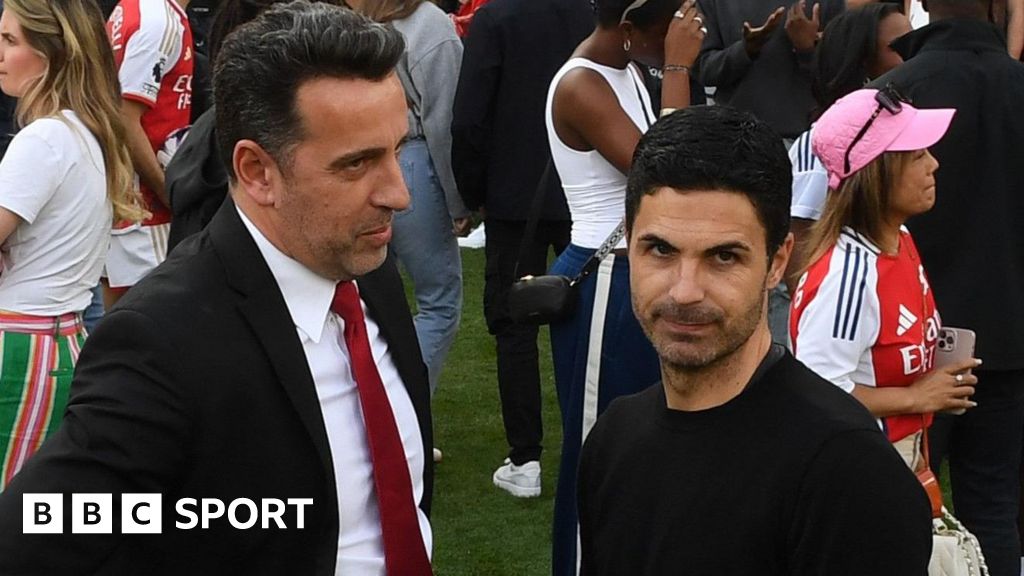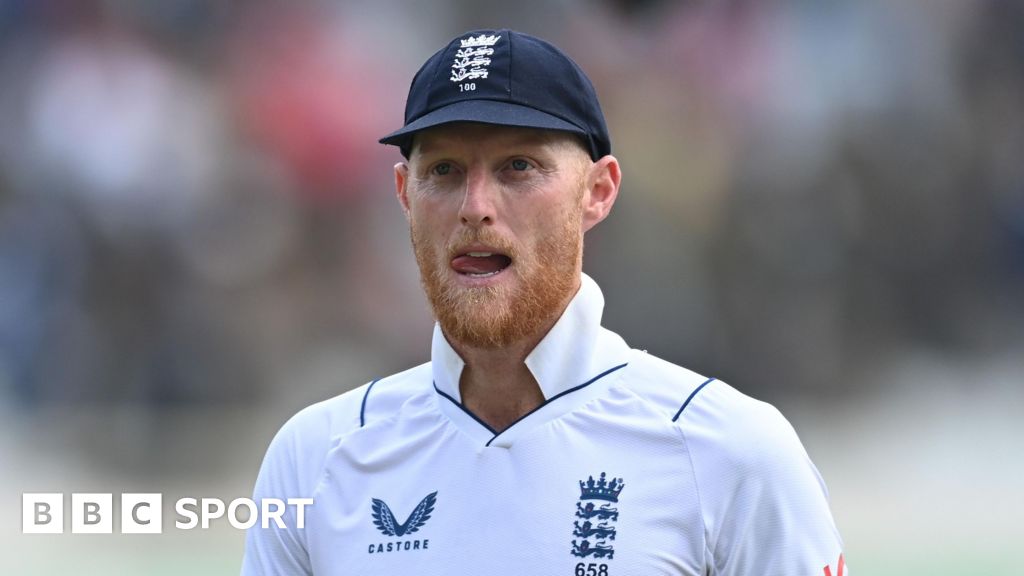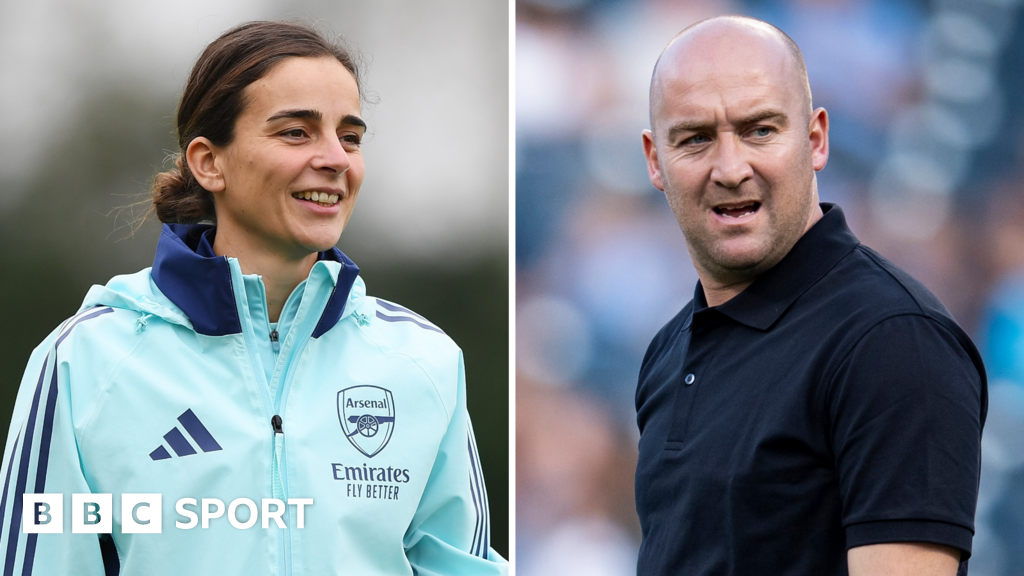ARTICLE AD BOX
Argentina face Colombia in Monday's Copa America final bidding to make history.
Victory for Lionel Messi's side in Miami will see them win the competition for an outright record 16th time.
Messi, who now plays for Inter Miami, was on the scoresheet as Argentina beat Canada 2-0 to reach the final, while Colombia overcame Uruguay 1-0 in a semi-final marred by an angry confrontation between some players and fans in the stands after the final whistle.
The match kicks off at 01:00 BST.
Football is one of the main threads linking the two countries at opposite ends of South America - and it is almost a father-and-son relationship.
Along with Uruguay, Argentina were first out of the blocks in South American football. Of the continent's 10 nations, Colombia were the ninth to take part in the Copa, entering for the first time in the 18th edition, in 1945.
Soon afterwards, Colombia launched a pirate professional league. Outside the control of Fifa, it did not have to pay transfer fees.
At this very moment Argentina's players went on strike. And so Colombia lured many of the big names north - including the great Alfredo di Stefano, who starred up front for Millonarios of Bogota for a few years before going on to change European football with Real Madrid.
Since then there has always been a strong Argentine influence on Colombian football. Frequently the national team coach comes from Argentina, as is the case now, with one-time Swindon Town defender Nestor Lorenzo doing a fine job.
Defending world and continental champions, Argentina have won the Copa 15 times. Victory on Sunday will put them one ahead of Uruguay as the most successful team in the competition's history.
Colombia have just one title to their name - on home ground in 2001, a tournament to which Argentina refused to turn up. The greatest triumph in Colombia's history was a 5-0 World Cup qualification rout of Argentina in Buenos Aires back in 1993 - the first time La Albiceleste had ever lost a qualifier at home.
However they get over the line, that win will be surpassed in prestige if Colombia can overcome their old mentor on Sunday with a title at stake.
At club level James Rodriguez is a forgotten man. In a career of ever-decreasing circles, he is currently surplus to requirements at Sao Paulo in Brazil. But with the national team he is shining once more.
In a highly structured side he is allowed to roam free, finding little pockets of space from which to work his left-footed magic. His cross-pass for Daniel Munoz to set up Colombia's opening goal against Paraguay was perhaps the outstanding moment of the tournament, a glorious piece of vision that took out the entire defence.
Rodriguez turned 33 on Friday, and has used this tournament to show there is plenty of football still left in him.
But how much is left in Lionel Messi, who has reached 37 while the ball was rolling?
Sunday will be Angel di Maria's last match in the national team. Might it also be team-mate Messi's, at least as far as tournaments are concerned? This is a real possibility.
Messi is using the Copa as a test to judge if he can do himself justice in the next World Cup. On the evidence so far he has clearly declined since Qatar.
He is finding it harder to kick away from defenders. Messi is still capable of brilliance, but it is more sporadic.
Coach Lionel Scaloni confessed as much when he dropped Lautaro Martinez for the semi final in favour of the running power and the extra man in the build-up of Julian Alvarez. This switch, of course, happened in Qatar. But then Martinez was out of form. Now he is the top scorer in the Copa, and even so he has found himself on the bench.
Argentina were placed in by far the easier half of the draw, and have cruised - with the exception of the quarter-final against Ecuador. With a move to three in the centre of midfield, and Moises Caicedo free to run forward, Ecuador gave them real problems, until goalkeeper Emiliano Martinez once more came up with heroics in the penalty shootout.
Like Ecuador, Colombia are a physically strong team with three in the centre of midfield, making it hard for Argentina to get into the rhythm of their passing game. Colombia are well coached, clear about where they want to press - either dropping deep and staying compact or hunting in packs higher up the field.
In open play Rodriguez is a splendid supply line for Luis Diaz. And his set-pieces can also be devastating - inviting an aerial assault from the likes of Davinson Sanchez and Jefferson Lerma.
All of this will worry an Argentina defence who are prone to a late collapse. It happened in the World Cup against France, the Netherlands and Australia, and it happened in the Copa against Ecuador - and also in the semi-final against Canada, who wasted two golden chances in the last five minutes. One day this will cost Argentina the game - but will it be Sunday?
There are two key questions here. The first is emotional. England are not the only team playing their first final away from home. Colombia are unaccustomed to this kind of occasion. The fever in the stands from their devoted supporters can encourage or inhibit. How will the team react?
And the other question is physical. This has been a competition played in gruelling summer heat, which, even if some of the stadiums are air conditioned, has taken a toll.
Colombia have had a day less to rest - and they played the entire second half of their fiery semi-final against Uruguay with 10 men after a silly red card picked up by the otherwise excellent Munoz, the Crystal Palace full-back.
How much has this taken out of them and do they have enough gas in the tank to bring the curtain down on the Messi show?

 3 months ago
26
3 months ago
26








 English (US)
English (US)